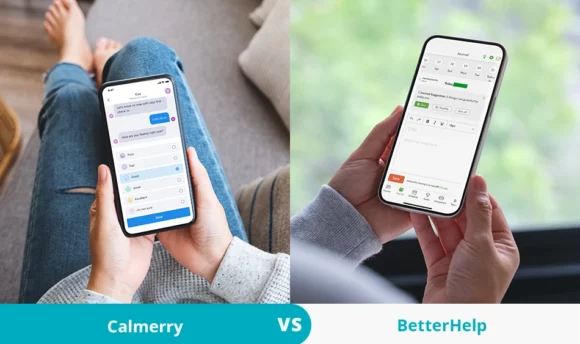Can Stress Cause Nosebleeds? +4 Ways to Treat One
Dealing with stress and nosebleeds at the same time can be frustrating. Some people believe these factors are connected, but is that actually true? We explain if emotional stress causes nosebleeds, including 4 at-home remedies that could treat it.

One day, you might wake up feeling stressed.
This type of emotional stress could lead to a range of physical symptoms that make the day even more challenging. Fatigue and headaches are normal, but what about nosebleeds?
Most nosebleeds derive from common problems like temperature changes or irritated sinuses. The last reason you would expect is high stress levels. It’s believed that chronic anxiety or stress throughout the week may increase the risk of anterior nosebleeds.
Are you curious to know why? Just keep on reading our article.
Can Stress Cause Nosebleeds?
Yes, anxiety and stress are risk factors for frequent nosebleeds. Feeling stressed usually increases blood pressure, leading to stronger blood flow throughout the body. Of course, these symptoms may trigger nose bleeding in those dealing with emotional stress.
Stress doesn’t directly cause nosebleeds but can promote certain behaviors that increase the risk of physical problems. For example, people who feel stressed might cry and blow their nose. A medical research found that blowing your nose repeatedly can burst tiny blood vessels.
Another common factor includes high blood pressure due to stressful situations. A study discovered that people who experience blood pressure spikes may have damaged blood vessels. Over time, it becomes much easier to trigger nosebleeds because of the weak capillaries.
Thank you for your answer
Health Reporter Surveys
Why Do I Keep Getting Nosebleeds?
The lining of your nasal cavity is very sensitive. Small weather changes combined with frequent nose-picking make you more susceptible to bleeding. This is because dry air weakens the blood vessels and causes them to bleed when prodded repeatedly.
However, environmental factors aren’t the only causes of nosebleeds. Some people have hereditary hemorrhagic telangiectasia – a disorder that may trigger severe nosebleeds. If you also get constant headaches and shortness of breath, consult with a healthcare professional.
Some other common reasons comprise allergy triggers, physical trauma to the nose, blood thinners, constant nose blowing, extreme sports, sinus infections, and blood-related health conditions. Suffering from any of these could weaken your nasal membranes in the long term.
Why Does My Nose Bleed When I Cry?
Crying has been known to cause high blood pressure. This level of stress changes the blood flow in your nose capillaries and nasal membranes. People with an anxiety disorder may be more susceptible to nosebleeds due to stress and anxiety symptoms.
Of course, it’s not normal for your nose to bleed every time you cry. There may be an underlying cause, like high blood pressure or certain bleeding disorders. It’s a common belief that anxiety increases hypertension, which damages the tiny blood vessels inside your nose.
Crying isn’t one of the main risk factors for nosebleeds. You might feel stressed from this emotional state, but only things like high blood pressure, nose picking, and nose blowing will trigger them. Try to avoid blowing your nose after crying and find ways to reduce stress.
How to Treat a Stress-Related Nosebleed?
Now, treating your nosebleed shouldn’t be a challenging process. You can take care of your body using simple at-home remedies. People who get posterior nosebleeds or take blood-thinning medications should seek medical attention when experiencing a recurring nosebleed.
Here are 4 ways you can treat a stress-related nosebleed:
#1 Breathe deeply
Dealing with a bleeding nose frequently can be annoying, but it’s important to ease your stress and anxiety first. Go to a calming place in your house after grabbing some tissue. Sit down in an upright position, holding the tissue against your nose, and push your head slightly forward.
Breathe in deeply through your mouth to avoid swallowing blood. You can also pinch the bridge of your nose to help stop the bleeding. During this time, your nosebleed should settle down from the pressure, but continue the deep breathing motion to ease any high stress levels.
In a moment of panic, it’s natural for your heart to start racing. However, to save a trip to the emergency room, find a quiet space to practice this slow breathing. The Anxiety and Depression Association believes that reducing stress keeps your body healthy in the future.
#2 Try stress relief techniques
There are many ways you can relieve stress at home.
Some of these comprise regular physical activity, meditation, online yoga classes, connecting with friends, eating good food, and listening to music for better productivity. You don’t need to follow all of these methods, but completing at least two a day should improve your health.
Going for a long-distance run or walk can be the best thing for stress. A study found that exercise stimulates endorphins – hormones that promote relaxation. Calming the mind and body stops stress from causing nosebleeds, tense muscles, and high blood pressure.
If you’re new to journaling or meditation, you may try one of the mental health apps available on the market. They can provide you with useful techniques and guided audio sessions to ease you into the process and remind you to take care of yourself.
#3 Reduce your caffeine and nicotine intake
Caffeine and nicotine are two substances that will dry out your body and drain the moisture from your nasal membranes. Not retaining enough water could lead to cracked blood vessels in the nose. Simple things like blowing your nose or sneezing will instantly trigger a nosebleed.
It’s believed that these stimulants also increase stress levels. The more physical and emotional stress you experience, the more likely you’ll get nosebleeds. Consuming too much nicotine may promote heart disease, so it’s best to limit these as much as possible in your everyday life.
#4 Drink more water
Drinking lots of water will maintain adequate hydration in the body. Your nasal passages can stay hydrated without suffering from dry or humid environments. Water consumption also improves long-term brain health, which relieves symptoms of stress, anxiety, and depression.
The recommended daily intake is 9 cups for women and 12 cups for men.
FAQs
Yes, not getting enough sleep can trigger nosebleeds. This is because sleep deprivation promotes high blood pressure and emotional stress. To reduce stress, stay active during the day, try meditation techniques, and connect with others about your current feelings.
The medical term for a nosebleed is epistaxis. There are two types of nosebleeds you can get, depending on your physical symptoms. Anterior nosebleeds leak blood through your nostrils, while posterior nosebleeds occur deeper in the nasal passages and promote more blood loss.
Depression may cause an anterior nosebleed due to high blood pressure, frequent nose blowing, and eliminated healthy habits. For example, depression has been known to weaken the body’s immune system, which increases the risk of a sinus infection and nosebleed.
A Word From a Psychologist
Nosebleeds aren’t usually a cause for concern, as they tend to have common reasons. Dry environments, constant sneezing, or high stress levels could be the triggers. However, if the nosebleed is also accompanied by chest pain and fainting, seek immediate medical attention.
It’s important that you improve your mental health before dealing with physical issues. The mind and body are deeply connected, which is why your nose reacts to fluctuating blood flow. Consider exercising regularly or avoiding allergy triggers to stop stubborn nosebleeds.
To avoid emergency room visits, speak to your doctor about a constant bloody nose. You might have an underlying condition that makes nosebleeds worse. The only way to prevent nosebleeds is by reducing stress, drinking lots of water, and staying active.
Conclusion
So, does stress really cause nosebleeds?
Being stressed in your daily life can certainly trigger occasional nosebleeds. This stress might increase blood pressure and weaken those tiny blood vessels. It might also be the cause of hemorrhoids and even shingles.
It’s best to relieve your stress using calming techniques and find ways to improve your mental health in the long term.

















































 Select your language:
Select your language: 








